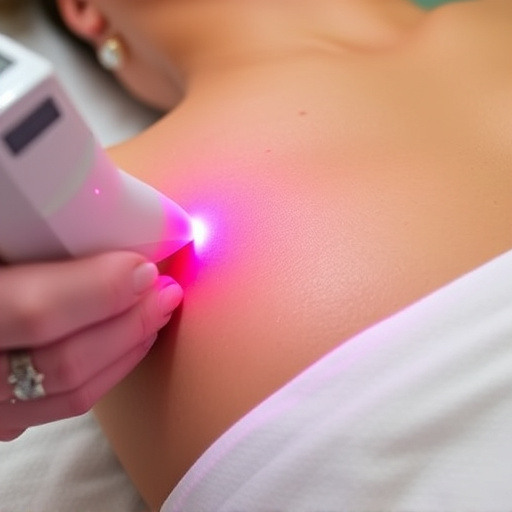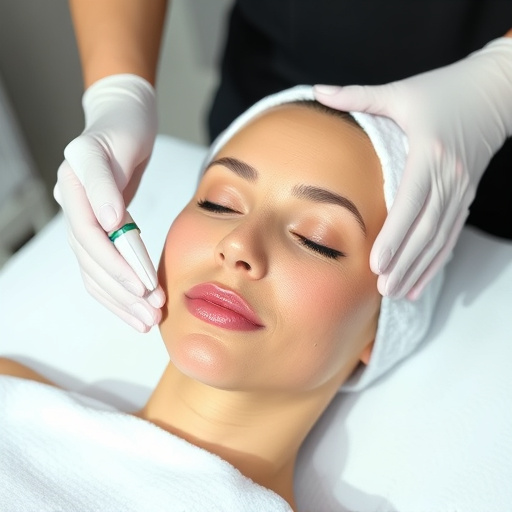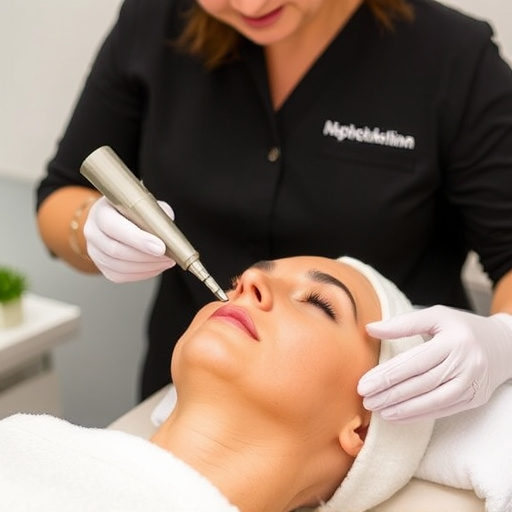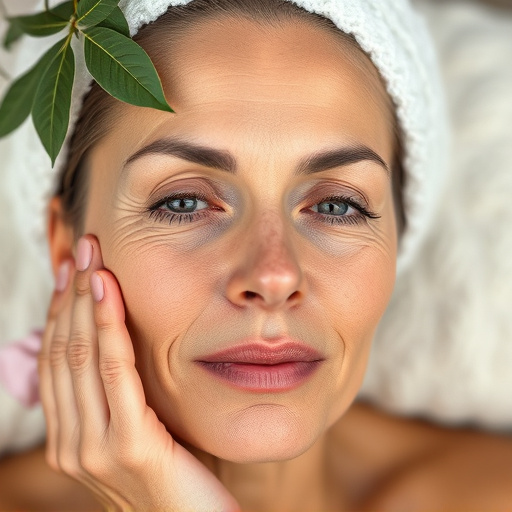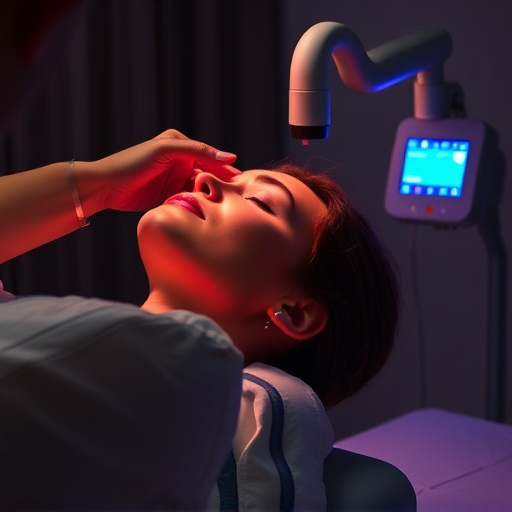Clinical strength treatments, prescribed by dermatologists, offer powerful solutions for severe skin concerns like acne, eczema, and rosacea due to their higher active ingredient concentrations. While over-the-counter (OTC) products are gentle and suitable for minor issues, clinical strength treats root causes for transformative results. However, these potent formulas may cause irritation or dryness, requiring individual needs assessment and adverse reaction monitoring, especially for severe conditions. Consulting a dermatologist is essential for optimal skin health when considering clinical strength treatments.
“Considering a shift from over-the-counter (OTC) products to clinical strength treatments? This guide helps you navigate that decision. Clinical strength options offer enhanced efficacy for severe conditions, but come with potential side effects. We’ll explore what sets these treatments apart and when they’re truly necessary.
From understanding specific needs to evaluating a comprehensive checklist of symptoms and outcomes, this article equips you to make informed choices regarding clinical strength treatments.”
- Understanding Clinical Strength Treatments: What They Are and When They're Necessary
- Over-the-Counter (OTC) Products vs. Clinical Strength: Comparing Efficacy and Side Effects
- When to Prioritize Clinical Strength: A Comprehensive Checklist for Effective Treatment Choices
Understanding Clinical Strength Treatments: What They Are and When They're Necessary
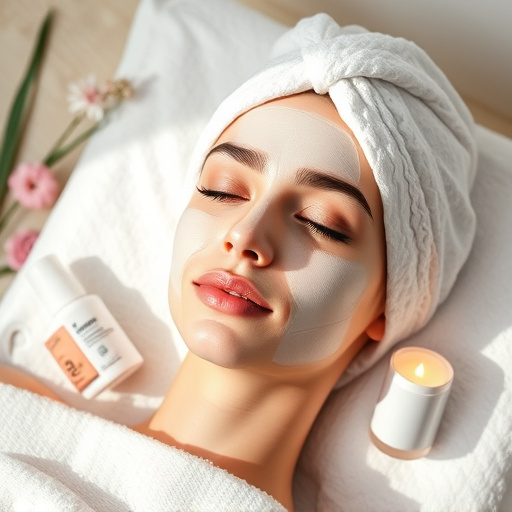
Clinical strength treatments offer a heightened level of potency compared to over-the-counter (OTC) products, making them ideal for addressing more severe or persistent skin concerns. These treatments are typically prescribed by dermatologists and contain higher concentrations of active ingredients designed to deliver rapid and effective results. Unlike OTC options that often provide gentle, general solutions, clinical strength treatments tailor their approach to specific skincare needs, offering a more targeted and intense form of therapy.
While OTC products like hydrating facials and customized facials can be beneficial for maintaining skin hydration and addressing minor issues, clinical strength treatments are necessary when dealing with conditions such as acne, eczema, or rosacea that require stronger interventions. These advanced formulations penetrate deeper into the skin to address root causes, providing a more comprehensive solution that goes beyond surface-level relief. Professional skincare enthusiasts often turn to clinical strength options for their ability to deliver transformative results, especially in cases where mild treatments have proven ineffective.
Over-the-Counter (OTC) Products vs. Clinical Strength: Comparing Efficacy and Side Effects
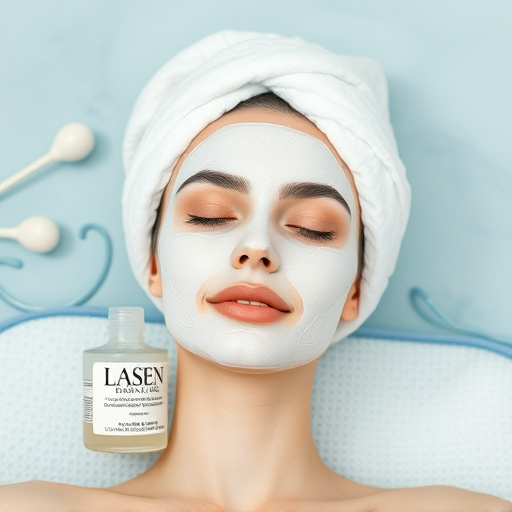
Over-the-Counter (OTC) products have long been the go-to for minor skin concerns and common ailments. They are widely accessible, often affordable, and typically contain lower concentrations of active ingredients designed to alleviate specific symptoms. However, when it comes to addressing more severe or persistent conditions, clinical strength treatments offer a significant advantage in terms of efficacy. These prescription-strength formulas contain higher doses of active substances, ensuring more potent results for various skin issues—from acne and rosacea to conditions requiring anti-aging interventions like laser hair removal or skin rejuvenation.
While OTC products generally have fewer side effects due to their lower potency, clinical strength treatments might cause irritation, redness, or dryness, especially in sensitive skin. It’s crucial to weigh the benefits against potential drawbacks and consider individual needs when deciding between OTC and clinical strength options. For instance, for conditions like severe acne or persistent facial redness, a clinical strength treatment may be more effective but require careful monitoring for adverse reactions. On the other hand, for mild skin irritation or temporary cosmetic concerns like achieving body contouring, an OTC product might suffice while still providing noticeable improvements.
When to Prioritize Clinical Strength: A Comprehensive Checklist for Effective Treatment Choices
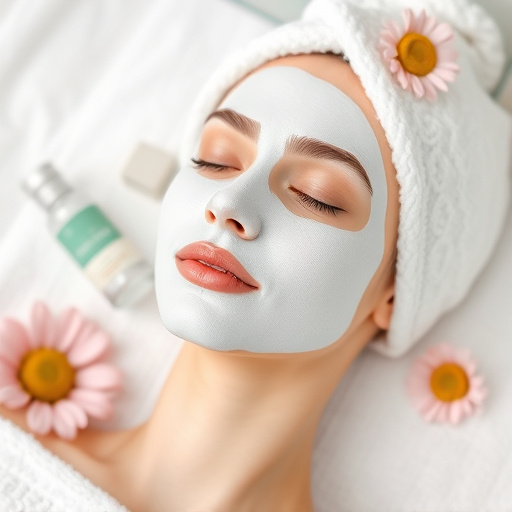
When prioritizing clinical strength treatments, it’s crucial to consider specific factors that underscore the need for potent formulations. These scenarios often call for products designed to address severe or persistent skin concerns, such as persistent acne, eczema, or rosacea. If over-the-counter (OTC) options have proven ineffective or insufficient, clinical strength treatments with higher concentrations of active ingredients can be game-changers. For instance, when dealing with moderate to severe acne, clinical strengths with benzoyl peroxide or retinoids might offer more significant results than OTC alternatives.
Additionally, for targeted solutions like laser hair removal or wrinkle reduction, clinical strength products can provide the depth and consistency required. If you’re seeking substantial hair reduction or a noticeable decrease in fine lines and wrinkles, these treatments’ precision and potency make them ideal choices. Keep in mind that while clinical strengths offer advanced benefits, they also come with increased potential side effects; thus, consulting a dermatologist to tailor the treatment to your specific skin health needs is paramount.
When deciding between over-the-counter (OTC) products and clinical strength treatments, understanding the unique benefits of each is key. While OTC options offer convenience and mild relief for minor ailments, clinical strength formulations provide a more potent solution tailored to specific, often more severe conditions. By considering factors like ingredient potency, potential side effects, and individual needs, you can make an informed choice. For instances demanding rapid and robust action, clinical strength treatments may be the superior option. Trusting your judgment and consulting healthcare professionals when necessary ensures you select the most effective remedy for your well-being.








